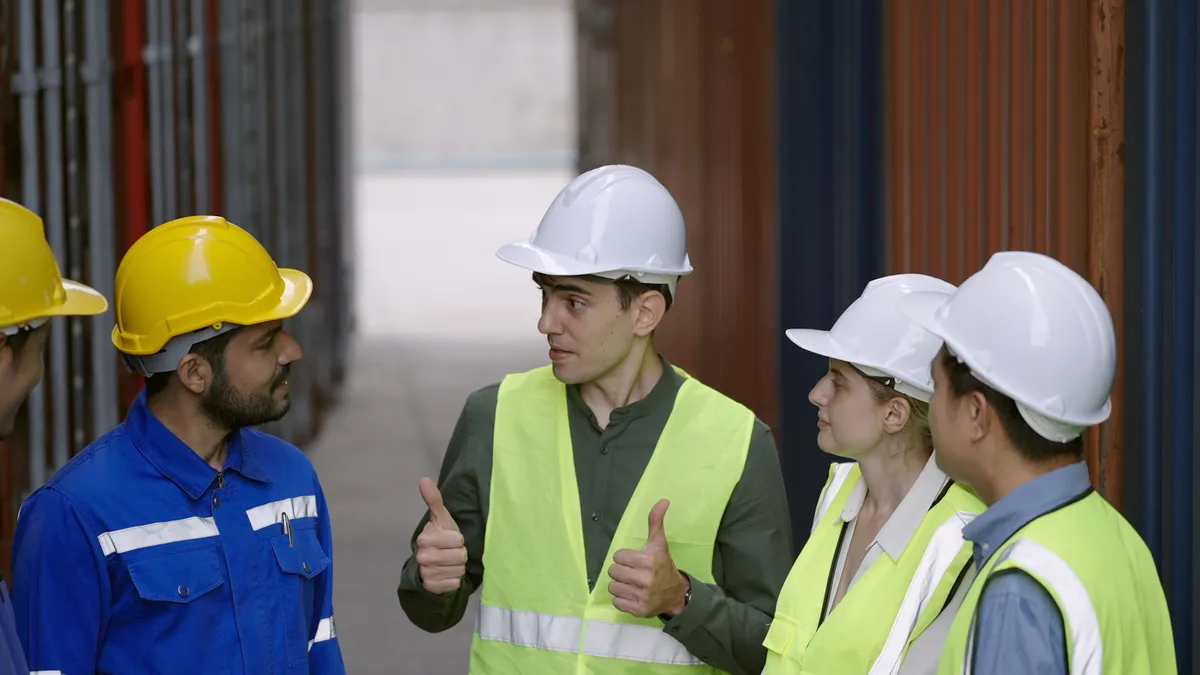When it comes to safety for utility companies, the stakes are especially high. Employees work alongside hazards like electricity and natural gas every day. They sometimes operate alone in remote areas, at dangerous heights, or within confined spaces or unstable structures. They often must deal directly with unhappy customers. And if mistakes are made, workers not only can suffer serious injury or death, but organizations and families also lose the basic services they need to survive.
In an environment like this, creating the right safety culture seems obvious. But most utilities have a singular focus on physical well-being (think personal protective equipment [PPE] best practices, OSHA standards, falling hazards, injury prevention, etc.) instead of a human-centered approach to safety, which prioritizes the whole person.
Human-centered safety — also known as whole-person safety, Total Worker Health® (a term trademarked by the National Institute for Occupational Safety & Health), or holistic safety — is an innovative way to evaluate and improve safety for utility workers in ways that go beyond protection from hazards.
“Whole-person safety is about much more: happiness, confidence and experiencing a sense of purpose and belonging. These things matter just as much as being physically safe,” says Jill James, chief safety officer at HSI.
What is human-centered safety all about?
Compared to what most utilities practice, human-centered safety takes a distinctive view on employee health and safety.
Safeguarding workers from injuries and illnesses is only part of the puzzle. When you reframe how you think of your employees and what they have to offer, it’s easy to see why you shouldn’t stop at physical safety. Employees are people first, workers second. And people are priceless. Workers don’t want to feel like they’re taken for granted.
Unlike the systems they work on daily, the workers who repair and maintain electrical, gas and plumbing systems aren’t commodities that serve a single purpose. They’re humans who have lives and families outside of work, who want to be proud of the contributions they make to their community, and who have the capability to continually learn in order to do their jobs more effectively.
Human-centered safety prioritizes:
- Physical, mental and emotional well-being both inside and outside of work to prevent injury and illness
- Skills enhancement to help workers improve their relationships, attitudes, behaviors and interactions
- The contributions of employees and the value they bring to the team and the company
- Reducing the physical and mental toll of utility work whenever possible
- Creating work environments supporting and promoting honesty, collaboration and feedback without consequences or finger-pointing
Making safety matter at every level
Human-centered safety isn’t only focused on front-line workers who are directly exposed to hazards. It aims to help leaders back at the office improve, too, so they know how to create human-centered environments, lead by example, and facilitate wellness and professional development among their workers.
Leaders must act in a way that encourages their employees to speak up, share ideas, voice concerns and ask for help when needed.
Human-centered safety can help utility leaders develop the emotional intelligence skills they need to:
- Ask the right questions
- Positively motivate
- Listen to employees’ concerns and know how to respond appropriately
- Lead difficult conversations toward positive outcomes
- Build relationships and trust
- Practice empathy
- Demonstrate resilience amid change
- Exhibit compassion
- Provide comfort and advice
This practice is especially critical in utility environments where one misunderstanding or disagreement can lead to unsafe practices putting entire communities at risk.
To create environments supporting human-centered safety, people at all levels need to learn about and actively champion the initiative. Real change only happens when everyone is on board, is committed to the cause, and works together to raise awareness and let employees know their employer cares about them not as a worker, but as a person.
“The real work happens when managers, leaders and supervisors are involved as well,” says James. “They’re the ones who have to take things the rest of the way, so they need the professional and personal skills required to create an environment that makes people feel valued and cared for.”
Remember: we’re all human (even your workers)
When employees don’t feel comfortable, it negatively impacts communication, collaboration and the work environment, and takes a toll on their mental health.
When your utility company makes an effort to show employees they’re valued and protected in every way possible, then workers focus their attention on their work without wondering whether you have their best interests at heart — or if they’ll be reprimanded for speaking up about an issue they need help with.
“Don’t continue to pull that dusty, three-ring binder off the shelf and recycle information on physical safety and first aid,” James said. “Talk about being human. Talk about and educate on the soft skills we need in order to work better together. This will improve everyone’s lives.”
Keep reading:
The Costs of Not Training Employees
On-Demand Webinar Recap: Stop Yelling at Me!
Learn more about how to create a human-centered safety culture in your utility company by visiting www.HSI.com.










